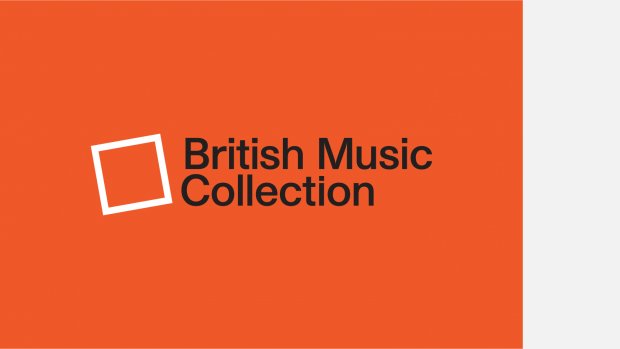
Biography
Anthony Bernard's birth was registered as Alan Charles Butler in the West Ham district, then classified as Essex,[2] in early 1891. His mother was Rosetta Ann Casselden who had married Alfred Charles Butler, a coal-merchant (son of Henry Butler, also a coal-merchant) four years previously on 21 September 1887.[3] Alan Charles Butler changed his name by deed poll in 1919 according to the National Archives.Further family research has uncovered the fact he was an illegitimate child of the Edwardian band leader Thomas Bidgood and Rosetta Casselden. Another of Thomas Bidgood's sons was the dance band leader Harry Bidgood (Also known as Primo Scala.) In the 1901 census, Rosetta Casselden was not living with her husband; and she declared herself to be Rosetta Barnard and her 10 y.o. son Alan Charles Butler to be 'Allan Barnard' who was born in 'New York'. Prior to cohabiting with Thomas Bidgood, she had three more sons (1893 - Thomas George who died in infancy; 1896 - Thomas Walter; and 1898 - Henry James), all were registered as 'Barnard' (Harry Bidgood was Henry James Barnard). Thomas Walter was registered with Butler as the mother's name, the other two had Casselden. By the time Thomas Bidgood left his wife and son Albert Thomas, and set up home with Rosetta Casselden/Butler, Alan Charles Butler had moved on; and the remaining three sons adopted the surname Bidgood. A fourth was born in 1914 and named Warwick Bidgood. It is/was not a requirement of English law to register a change of name. Deed Poll is optional.
The adopted surname of Anthony Bernard would therefore seen to have derived from his mother's use of Barnard. Though why she did remains to be ascertained.
Anthony Bernard studied with Joseph Holbrooke, John Ireland, Leonard Borwick and Sir Granville Bantock. He was appointed organist at St. Augustine's, Ramsgate in 1910. He worked in some other churches, and also became well known as an accompanist to singers, such as Muriel Foster, who retained him for the rest of her career, and John Coates.
In 1921 he was one of the people at a luncheon convened by Sir Edward Elgar, the other invitees being Arthur Bliss, Eugene Goossens, John Ireland, Adrian Boult, and W. H. "Billy" Reed, leader of the London Symphony Orchestra. The purpose of the meeting turned out to be Elgar's suggestion that Bliss, Goossens and Herbert Howells each write a new piece for the 1922 Three Choirs Festival, to be held in Gloucester. Bliss's contribution was his A Colour Symphony.[4] Goossens wrote Silence for chorus and orchestra.[5] Howells wrote Sine Nomine for wordless chorus[5] (which was not given its second performance until his centenary year 1992).[6] Elgar's own contribution was his orchestration of Bach's Fantasia and Fugue in C minor, BWV 542.
That year Anthony Bernard formed the London Chamber Orchestra (LCO), and led them in unfamiliar and better-known repertoire from the early masters through to contemporary composers such as Frederick Delius. He also founded the London Chamber Singers. From 1922 to 1926 he conducted the Dutch Chamber Orchestra, and in 1926 he took the LCO on a tour of Spain. He conducted the British National Opera Company in 1924 and 1925.
He conducted the first performance of Christian Darnton's Octet for flute, clarinet, bassoon, cornet and string quartet, on 26 March 1927.[7]
In 1927, he presented a festival of the music of Manuel de Falla, in which the Harpsichord Concerto and Master Peter's Puppet Show had their first performances in England; the solo part in the concerto was played by Falla himself. In 1928 his orchestra became associated with the New English Musical Society. In 1929, Bernard conducted the London Chamber Orchestra in the first complete recording of Bach's Brandenburg Concertos. It is not certain that this recording was officially issued, and only excerpts are now known to exist.[8]
Anthony Bernard conducted the first recording to be released of Frederick Delius's Sea Drift (1929) with the baritone Roy Henderson and the New English Symphony Orchestra, and was praised by the composer's wife Jelka for his conducting.[9][10]
He also conducted the first concert performance of Ralph Vaughan Williams's A Christmas Carol Suite, on 17 December 1929 in London.[11] Lennox Berkeley was another composer who entrusted the first performances of some of his works to Anthony Bernard.[12]
In 1930 he organised a festival of Italian music from the 11th to the 20th centuries. He performed similar services for French music and was later honoured by the French government for his services. He also conducted opera both at home and abroad, and wrote incidental music for and directed productions of plays by William Shakespeare and others. From 1932 to 1942 he was musical director of the Shakespeare Memorial Theatre at Stratford-upon-Avon. His activities also included conducting orchestras such as the London Symphony Orchestra, the Concerts Colonne, and others in Copenhagen, The Hague, Madrid, Athens and Prague. Later in life, he wrote a great deal of incidental music for radio plays. His other compositions include an organ prelude, Rorate Coeli (1916), Variations on a Hill Tune, for piano (1920), and songs.
Robert Simpson dedicated his Symphony No. 2 (1956) to Anthony Bernard, who conducted the premiere performance with the LCO.
Bernard died in 1963, aged 72.
Tags
West Ham
United Kingdom
